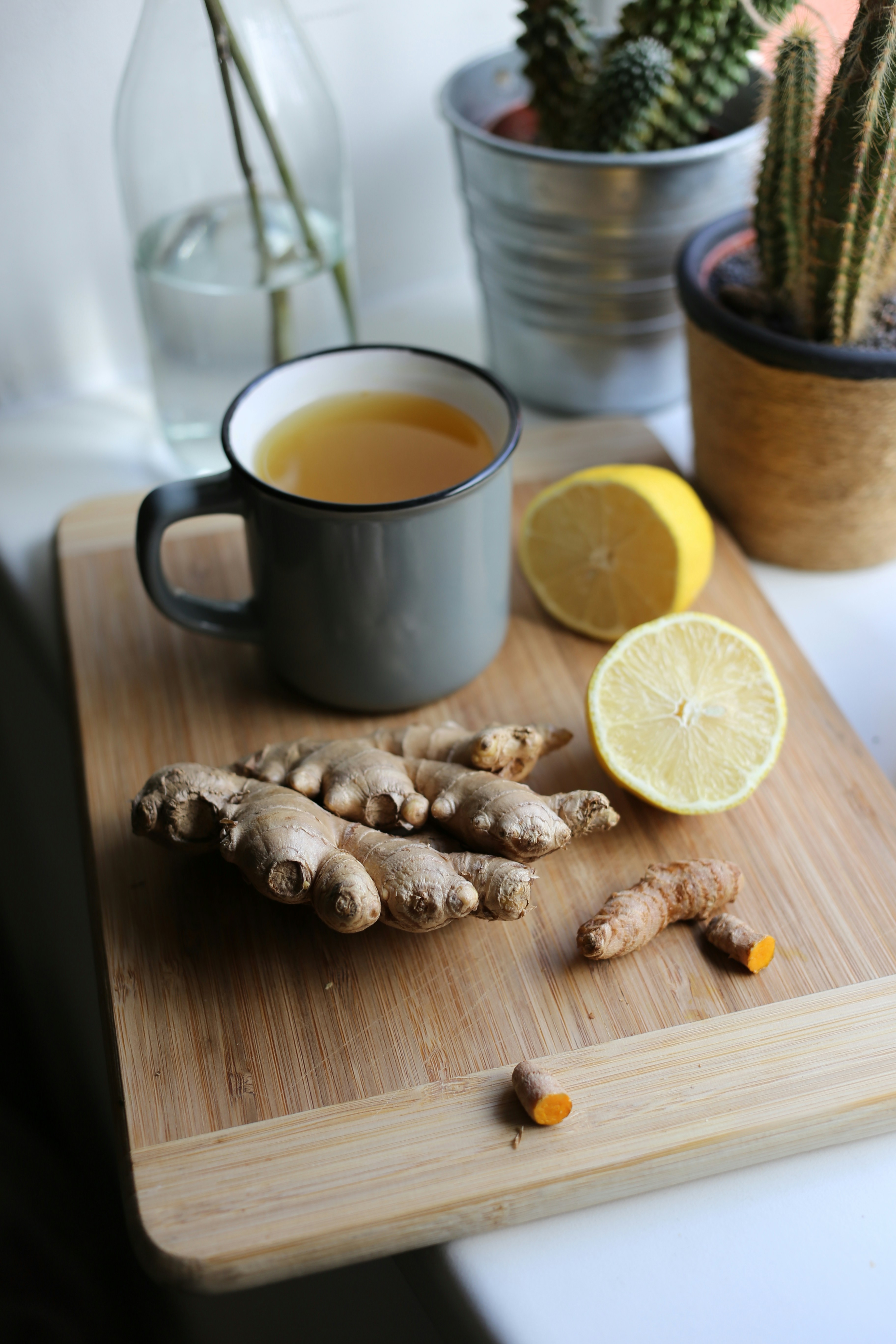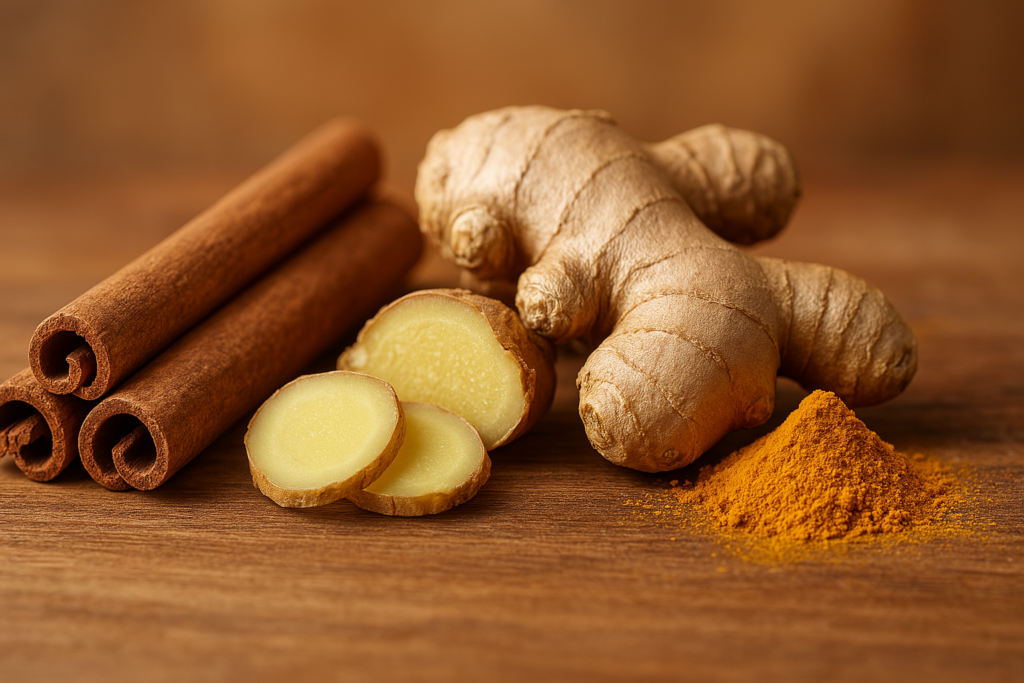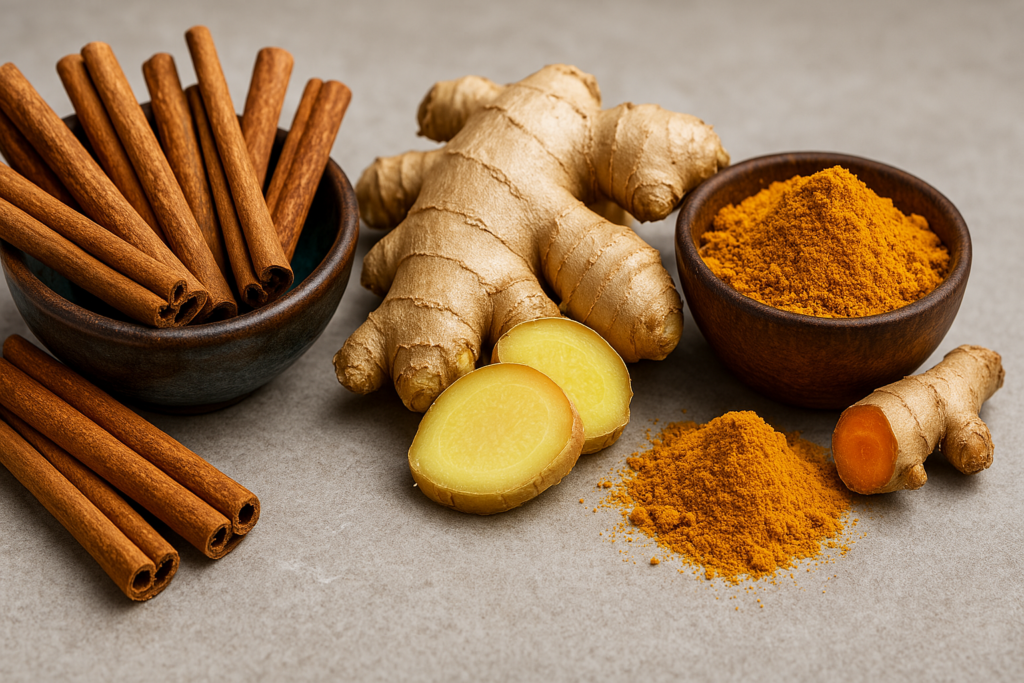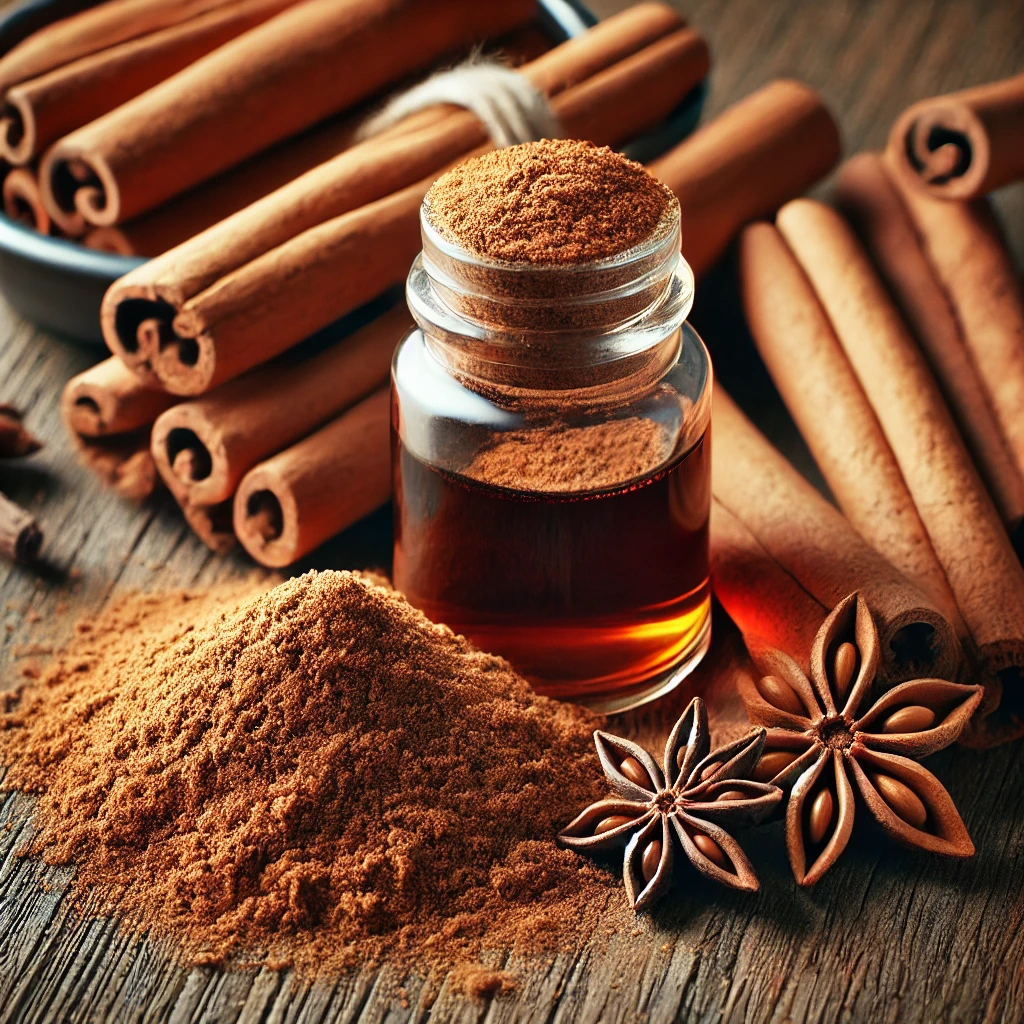

Introduction to the Power of Spice
Incorporating spices such as cinnamon, ginger, and turmeric into one’s diet not only enhances flavor but also promotes a myriad of health benefits. These vibrant spices have been integral to traditional medicine across various cultures for centuries, dating back to ancient civilizations where they were revered not only for their culinary applications but also for their healing properties. Each of these spices carries unique effects that can significantly contribute to overall well-being.
Cinnamon, known for its sweet and warm flavor, has garnered attention in modern health discussions due to its potential in regulating blood sugar levels and combating inflammation. This versatile spice contains compounds that may improve insulin sensitivity and lower the risk of diabetes, making it a valuable addition to a regular diet. Similarly, ginger is celebrated not only for its culinary versatility but also for its powerful anti-inflammatory and antioxidant properties. It has been shown to alleviate nausea, improve digestion, and may also reduce muscle pain associated with exercise. Such diverse applications highlight the notable role of ginger as a natural remedy in both everyday and clinical settings.
Turmeric, revered for its golden hue, boasts the active ingredient curcumin, which is celebrated for its extensive health benefits. Curcumin is recognized for its anti-inflammatory and antioxidant effects, which contribute to improved heart health and may even play a role in cancer prevention. When utilized together, these spices create a powerful synergy, magnifying their health benefits. This combination not only enhances flavor profiles in cooking but also fortifies the body against various ailments.
Overall, embracing the incorporation of cinnamon, ginger, and turmeric into one’s diet is an age-old practice that continues to hold relevance today. Understanding the individual and collective benefits of these spices sets the foundation for a deeper exploration of their advantages and how they can be effectively utilized in promoting health and wellness.
The Individual Benefits of Cinnamon, Ginger, and Turmeric
Cinnamon, ginger, and turmeric each possess unique properties that contribute to overall health and well-being. Starting with cinnamon, this aromatic spice is rich in bioactive compounds, particularly cinnamaldehyde, which is known for its anti-inflammatory and antioxidant benefits. Research has shown that cinnamon can support metabolic health by enhancing insulin sensitivity and aiding in the regulation of blood sugar levels. This makes it a valuable addition for individuals managing diabetes or looking to maintain stable energy levels throughout the day. Furthermore, its anti-inflammatory properties can help in reducing chronic inflammation, which is linked to various health issues.
Ginger, widely recognized for its culinary versatility, also offers numerous health benefits. Its active compounds, such as gingerol, provide powerful anti-inflammatory and antioxidant effects. Ginger is particularly renowned for its digestive benefits; it has been used traditionally to alleviate nausea, making it an excellent remedy for those suffering from motion sickness or morning sickness during pregnancy. Additionally, studies suggest that ginger can help reduce muscle pain and soreness, further showcasing its effectiveness as a natural anti-inflammatory agent. Its warming properties may also contribute to improved circulation, enhancing overall physical vitality.
Turmeric, often referred to as a superfood, contains curcumin, a potent compound known for its remarkable health benefits. Curcumin is celebrated for its strong anti-inflammatory and antioxidant properties, which play a crucial role in disease prevention. Recent studies have suggested that curcumin can help protect against chronic diseases such as heart disease and cancer by reducing inflammation at the cellular level. Moreover, it may support brain health by increasing levels of brain-derived neurotrophic factor (BDNF), which is linked to improved mood and cognitive function. The incorporation of turmeric into the diet can be an effective strategy for individuals seeking to enhance their overall health.
How to Incorporate Cinnamon, Ginger, and Turmeric into Your Daily Routine

Integrating spices such as cinnamon, ginger, and turmeric into your daily meals can be both simple and enjoyable, enabling you to reap their numerous health benefits consistently. One of the easiest ways to start is by adding these spices to your morning smoothie. A blend of banana, spinach, a teaspoon of turmeric, and a sprinkle of cinnamon can provide a nutritious and energizing drink to kickstart your day. For an extra boost, include ginger to enhance the flavor and nutritional profile.
Another popular and soothing option is to create a spiced tea. Boil water and steep fresh ginger slices alongside turmeric powder and a cinnamon stick. This tea not only serves as a relaxing drink but also aids digestion and supports your immune system. You can sweeten it naturally with honey or stevia, adjusting to taste. Additionally, enjoying this warm beverage in the evenings can be a comforting ritual to end your day.
Cinnamon, ginger, and turmeric can easily be incorporated into savory dishes as well. For example, adding ginger and turmeric to a vegetable stir-fry can infuse the meal with flavor while boosting its health benefits. Similarly, cinnamon can be sprinkled over roasted vegetables or included in sauces to create depth and warmth in flavor. When preparing soups, consider adding turmeric to your broth for a vibrant color and nutritional enhancement.
It is worth noting that the bioavailability of turmeric can be significantly improved when paired with black pepper. The active compound in black pepper, piperine, enhances the absorption of curcumin, the primary active ingredient in turmeric. Thus, when using these spices, consider a combination to fully harness their potential health benefits. By seamlessly incorporating cinnamon, ginger, and turmeric into various recipes, you pave the way to a healthier lifestyle infused with flavor and wellness.
Caution and Usage: Understanding the Dosage and Potential Side Effects

Cinnamon, ginger, and turmeric are celebrated for their health benefits, but it is essential to recognize that excessive consumption can lead to adverse effects. The appropriate dosage of these spices plays a crucial role in harnessing their potential while minimizing risks. Generally, moderation is key; for most individuals, incorporating culinary amounts of these spices into meals is safe and beneficial. However, when considering supplements or higher doses, it is advisable to consult with a healthcare professional.
Use with caution
Certain populations should exercise particular caution when using these spices. Pregnant and breastfeeding women, for instance, are often advised to limit their intake of various herbal supplements, including ginger, which may affect pregnancy. High doses of cinnamon can pose risks during pregnancy due to its potential effects on uterine contractions. Furthermore, individuals with specific medical conditions should be careful; those with gallstones or bile duct obstruction should avoid turmeric, as it may exacerbate their condition.
Interactions with medications also warrant attention
Turmeric and ginger can influence blood clotting; thus, individuals on anticoagulants like warfarin should closely monitor their intake. Additionally, ginger may interfere with blood sugar levels, necessitating caution among those on diabetic medications. It remains essential to assess how these spices interact with other treatments, as their natural properties could amplify the effects of certain medications.
Ultimately, integrating cinnamon, ginger, and turmeric into a balanced diet can be extremely beneficial, provided that individuals adhere to recommended dosages and guidelines. For those unsure about how to safely incorporate these spices, seeking advice from a healthcare provider is a prudent course of action to ensure health and well-being.






